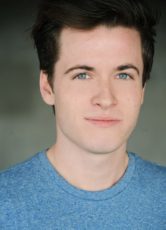
The craft of theater acting and acting in front of the camera have been described as essentially the same thing for an actor: performing a character amidst a storyline to be appreciated by audiences.
While some actors enjoy both mediums and make a point to participate in both stage and film, others gravitate more to one than the other. After all, both mediums have their own distinctions. Here are just a few notable differences.
Variations of subtlety or boldness
The camera notices and records every subtle facial reaction or gesture, and can pick up even the most quiet-but-powerful utterance. This close-up study of an actor can bring a strong sense of intimacy for audiences. On the other hand, large physical actions are often distracting when picked up by the camera.
The need to subdue movements can be hard for a theater-oriented actor who is trained to express more overtly. Because a stage actor is performing for both the person in the front row as well as the one in the way back, some productions use microphones, whereas others require an actor to project words more loudly and express emotions more boldly. Meryl Streep has worked on her lung capacity and her ability to “expand the sound” by swimming a mile a day for months before a performance requiring her to project as needed in a performance.
Performing with different time flows
If you like to get immersed in your performances and not be interrupted, then theater will likely be a better fit for you.
Theater actors work in a storyline’s chronological sequence which allows the character’s arc to naturally build and resolve through the course of the show, and without a director shouting, “Cut!” or requesting variations of the same line. But this also means that with each line, a theater actor is given only one precious shot to “get it right.” No two nights in theater are identical, thus the medium will keep you on your toes each performance with the awareness that the audience is present, watching, and responding.
In contrast, actors who gravitate towards film appreciate the opportunity to do several takes to explore the material, perhaps take more risks knowing any serious fumbles can simply be edited out, and find creative ways to authentically portray their characters’ emotional journey even though film work is so often shot out of order.
Industry professionals hold a wide array of views about whether theater or film skill sets are more or less the same, or if they are ultimately more distinct abilities than is often acknowledged. For instance, in the video clip below, Casting Director and Teacher Carolyn Barry shares her belief that it’s easier for actors in television to adapt to theater acting than the reverse.
“Television is about connecting emotionally, and it’s more intimate,” she says. “And I think it’s easier for those kind of actors to maybe then up the energy as opposed to people who are working just energetically and not as emotionally, truthfully. I mean, you can pretend an emotion in the theater; you can not do it in film and television.”
Unforgiven actor Saul Rubinek feels the reverse to some degree, arguing that every actor who does stage can do film, but that not every actor who does film can do stage. “Doing eight shows a week is another muscle altogether because any actor knows who does theater is that the best show in your first week doesn’t even come close in quality to your worst show in your last week….Your audience teaches you how to perform…and that’s not what happens on film,” he says.
“Everything you do in film is to give the director and the editor choices in that editing room. That’s everything; that’s all you’re doing is creating those choices for the people who are going to put it together.”
Actor John Malkovich feels that stage acting and film/television acting have considerable differences, and doesn’t believe an actor who excels in one will necessarily do well in the other. He argues, “Theater is an ephemeral, living organism; film is not. Theater, as we say about life, ‘You had to be there.’… Film, to me, is different. You only need a few good seconds….Film acting has no momentum.” He compares performing in a play to riding a wave or holding onto a runaway train. “Your job is to hang on while this material whips you around.”
There are many actors who have managed to benefit from careers in both stage and film with apparent ease. Among them is Tumbleweeds actress Janet McTeer who also narrated Maleficent. She tries to continually work in both mediums.
McTeer feels that both film and theater have “a huge sense of community.” In theater you have “an immediate contact with your audience, and in film you don’t, but in film it’s much more intimate…so in another way it’s even more truthful.”
But she admits working in front of a camera can make an actor feel very self-conscious with all the crew buzzing around from lighting experts to make-up artists. To break away from this overwhelming sense of self, she feels that concentrating on the face and words of the other actor is the through line to overcoming all the distractions and self-consciousness inherent in the film-making process.
An Education actress Carey Mulligan likewise has found a way to thrive in both mediums. She insists that “You get better as an actor doing theater.” Mulligan makes working in both forms look easy with a starring role in the film Madding Crowd, working alongside Meryl Streep in Suffragette and has starred in Skylight on Broadway.
She admits her affinity for the stage stating, “Once you’ve done a play, you build muscles, you feel better when you keep it fresh every time, it has to have the feeling it’s never been done before….On a film you can get nervous at the proximity of the camera, which immortalizes one moment, and you can’t do anything about it. You lose control. The theater is a fresh experience.”
Want to get your acting career started? Sign up or login to Casting Frontier and start auditioning today!
Related articles:
3 Hollywood Legends Who Started in Theater
Insights for Aspiring Actors from Casting Director April Webster
Casting Insights From Superhero Casting Director Sarah Finn




